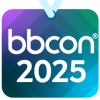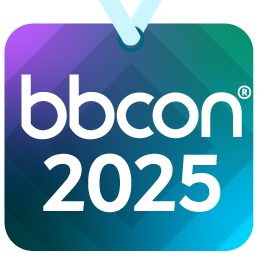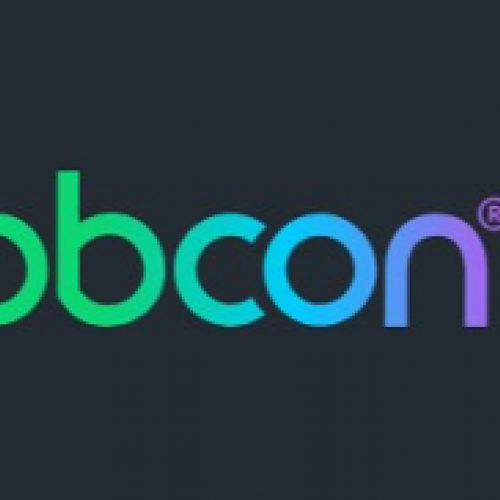NEW REPORT: The results are in…Gen Z giving is on the rise! Are you ready?





Afraid you're missing the mark with Gen Z donors? You aren’t alone! Most nonprofit professionals say that they don’t effectively show up in Gen Z spaces or communicate why Gen Z should support their organizations. A new report from the Blackbaud Institute, Gen Z at the Table, asks Gen Zers themselves how they see their role in philanthropy. Through an extensive research study and in-depth interviews, this report gets to the heart of Gen Z’s motivations as donors, advocates, and volunteers.
Did you know?
-
One third of Gen Z donors plan to increase their giving in the coming year.
-
Gen Zers are generous, especially with their time and energy!
-
Among those whose employers offer workplace giving programs 89% of Gen Zers take part!
-
Show them the data! Nearly 70% say that impact reporting is likely to motivate increased giving.
The bottom line: Gen Z is generous—the trick is engaging with them on their own terms. Get the latest insights and recommendations now and let us know in the comments where your organization is succeeding in cultivating this next generation of supporters.
Comments
-
What a fascinating report! As a Xennial, I can't wait to read all the big takeaways.
0 -
What a great report - I can't wait to share this with my team only 1/6 of us belong to Gen Z! So much data - I'm surprised about how well the donation at checkout works for this group. Wouldn't work for our organization as an independent school and wow my least favorite way to give!
0 -
I was quite surprised at how many were impacted by s physical letter, having seen how my own children (all of whom fall in this category) react to mail. I can understand their appreciation for the data on impact, though.
0 -
Glad to see desire to make a difference. I think we all want to know the impact of our giving - interesting like for a letter. Surprised at low # for monthly auto giving - seems like so much of world today is just automated. Am wondering about definition of giving - is that throwing change in at McD's or sending donation to non-profit.
0 -
Remember that Gen Z is the group that made the news for going back to “dumbphones” because of the overstimulation of social media. The response to physical mail makes sense in that context.
0 -
A lot of this reminds me of the reports 15 years ago, when Millennials were the next young wave. (I am a Millennial). For some reason, people get surprised by the universal truisms: that young people possess altruism and want to give back. That fresh-out-of-college professionals don't have any money and chiefly give through volunteerism and social advocacy. And that youth of every generation crave to feel important and “listened to” through advisory roles.
That being said, I was taken by one quote: “Instead of trying to explain stuff in big terms … just say things simpler, in the way younger people can understand.” Considering that we've been encouraged to write copy at 5-7th grade reading level for years, this call creates a challenge in telling stories differently. I imagine this is a reflection of the increase in “picture-talk” that pervades social media and internet, and represents a call to express stories less through text and more through graphics. I would be interested in seeing some research done to dig into this area more on the generational level.
0 -
I think the area we are missing out on the most in capturing Gen Z and young alumni at my org is the failure to show impact in specific, measurable ways. And when we do tell stories, we don't connect them to donor dollars.
I think this article is spot on to point out how critical that is to Gen z donors and honestly how it is essential to show impact for donors of all ages. We have lots of social media that highlights all the fun, extra, out-of-classroom activities, and cool hands-on projects our students do - and while we do post about them - we don't talk about how those are possible because of donor dollars. For example, we post about how students are tapping maple syrup trees and learning about the process of making syrup, with pictures and student interviews - but we don't mention that the project was funded by donors who wanted to enrich student experiences.
We've started to identify that most students, parents, and alumni think those types of things are funded through tuition alone. We have a focus project every year for senior students where we take pictures and show how that particular project looks on completion and get testimonies from the kids on how they were impacted by it. But that's the only one out of loads of projects that are donor-funded.
When we talk about the impact we are heavily focused on announcing if we met or exceeded say a Giving Day Goal - but then we don't take it that critical step and talk about or show what those dollars are going to. We imply they unlock student potential by providing great opportunities but don't really highlight what those opportunities are, and we have so many examples to use and it really does seem like you need to get that specific, real and measurable to encourage those younger donors to act.
0 -
I found the ways in which Gen Z's made donations in the last 12 months interesting indeed. The Donation at Checkout was particularly interesting, I wonder how many NFP's have access to that option?
0 -
But how much has GenX donated? Sort of kidding not kidding. GenXer's kids are GenZ. “A special report by Giving USA found that in 2022, Gen Zers gave on average $747, compared with Millennials, who donated $1,323, or Baby Boomers, who donated $2,568.”
I found this interesting. Nearly 70% say that impact reporting is likely to motivate increased giving and 57% said the same about the thank-you letter. I recycle my letters without even opening them but it does make sense with email and texting being way overused.
0 -
As with everything right now, paradigms are shifting rapidly. However, the power of a physical piece of mail (at least for recognition and thank yous) endures.
0 -
Thanks for the report on GenZ giving! It was inspiring! I shared it with our board chair and executive director. I had a few take aways…
- I appreciated the top 3 causes were human services, environmental, and healthcare
- 42% of their giving is spontaneous
- Impact reports and personal thank you notes mean a lot and encourages more giving
- Thought the Motivations by Type of Supporters chart was great and informative
And I especially liked the quote from one of the GenZ participates, "I don’t have a ton of money, but if the message spreads, more people will be able to donate time/money to the cause.”
We all can do something for someone - big or small!
0 -
I also found it interesting that “Nearly 70% say that impact reporting is likely to motivate increased giving and 57% said the same about the thank-you letter.” The chart that shows “How Gen Z wants to be thanked for their support vs. How Pros believe they want to be thanked,” was a great visual.
0 -
I was struck by those same points, Beth, though I usually open the letters before shredding ?.
As a GenXer, I've gotten used to being overlooked. I did find a survey from Vanguard Charitable that includes all four generations:
0 -
Agree completely! Our donors have tended to be older, and the marketing to them shows it. As someone younger than our typical donor, I am not moved by the pitches they include, and I can see why younger donors won't be swayed, either.
Making the connection to how their generosity will improve the lives of others is key.
0 -
Another thing that struck me was the top two methods of engagement: #1) promoting an org/cause on social media or 2) signing a petition or sending an email. Those are things I rarely do (outside of contacting my representatives on a collective issue), and I doubt I would have thought of those as ways I could support an organization.
I do wear a shirt with the logo of my organization (#3) on it, but to me it's a sign of in-office unity rather than getting the word out in the broader community.
Those are things to consider as we try to reach a younger audience.
0 -
I found it interesting that human services and environmental causes top the list of types of organizations Gen Z supports and that support can include promotion on social networks. I hadn't thought of that as volunteering/supporting before, but it makes sense.
I'd definitely like to see our org. focus more time and energy into engaging with Gen Z now since “research suggests that relationships formed by donors at a young age may often lead to significant giving as they get older and accumulate more disposable wealth.”
0 -
I find what causes Gen Z supports to be very interesting. Also, how calculated yet spontaneous they are with their donations. It's refreshing to me that the action of thank you cards is meaningful to them as well - it is something I have always been a cheerleader for because I think it is impactful. The influence and use of social media is something I related to because I find myself donating to things more frequently because I see who is supporting the cause and how passionate they are about it.
0 -
Great research on Gen Zers.
Impact Reporting: Is likely to motivate increased giving.
Emphasizing the importance of data. The importance of showing what has been raised and what for. Showing our donors the value of their contributions and that they made a difference.
0 -
My boss and I both found the information in this article incredibly helpful. To see how new donors are giving and where they are giving is good knowledge for any fundraiser.
0 -
I don't think I'm surprised that Gen Z are generous with their time, money and attention - I feel like young people have been like this for generations! It's interesting to see how they react to physical mail though - I'm a generation above and while I love receiving post, I don't want to get it from charities who I feel could spend that money better elsewhere (even though I work for one!!).
0 -
I have a few Gen Zs in my life, my nieces and nephews. They are the most generous people I know, even the ones on the younger side. While they don't yet make enough money to be making financial donations, they are super generous with their time and are great about sharing their time. Maybe I am just biased because they are my family, but the kids are alright!
0 -
encouraging solicitation of younger donors has always been a challenge at our k-3 organization because of the recency of their engagement with so many other organizations after their time with us. it was insightful to know that gen z is also very generous with their time as our constituents do tend to stay proximally close to our organization for extended periods of their lives.
0 -
I've found Gen Zers to be most supportive of our peer-to-peer fundraising events. It seems they are more likely to give when asked by someone other than the org directly. I hope that the next generation (Alpha) will exhibit the same or greater level of giving and volunteering. I'm certainly trying to teach this to my Gen Alpha child!
0
Categories
- All Categories
- 6 Blackbaud Community Help
- 213 bbcon®
- 1.4K Blackbaud Altru®
- 400 Blackbaud Award Management™ and Blackbaud Stewardship Management™
- 1.1K Blackbaud CRM™ and Blackbaud Internet Solutions™
- 15 donorCentrics®
- 360 Blackbaud eTapestry®
- 2.6K Blackbaud Financial Edge NXT®
- 655 Blackbaud Grantmaking™
- 576 Blackbaud Education Management Solutions for Higher Education
- 3.2K Blackbaud Education Management Solutions for K-12 Schools
- 939 Blackbaud Luminate Online® and Blackbaud TeamRaiser®
- 84 JustGiving® from Blackbaud®
- 6.6K Blackbaud Raiser's Edge NXT®
- 3.7K SKY Developer
- 248 ResearchPoint™
- 119 Blackbaud Tuition Management™
- 165 Organizational Best Practices
- 241 Member Lounge (Just for Fun)
- 34 Blackbaud Community Challenges
- 34 PowerUp Challenges
- 3 (Open) PowerUp Challenge: Chat for Blackbaud AI
- 3 (Closed) PowerUp Challenge: Data Health
- 3 (Closed) Raiser's Edge NXT PowerUp Challenge: Product Update Briefing
- 3 (Closed) Raiser's Edge NXT PowerUp Challenge: Standard Reports+
- 3 (Closed) Raiser's Edge NXT PowerUp Challenge: Email Marketing
- 3 (Closed) Raiser's Edge NXT PowerUp Challenge: Gift Management
- 4 (Closed) Raiser's Edge NXT PowerUp Challenge: Event Management
- 3 (Closed) Raiser's Edge NXT PowerUp Challenge: Home Page
- 4 (Closed) Raiser's Edge NXT PowerUp Challenge: Standard Reports
- 4 (Closed) Raiser's Edge NXT PowerUp Challenge: Query
- 790 Community News
- 2.9K Jobs Board
- 53 Blackbaud SKY® Reporting Announcements
- 47 Blackbaud CRM Higher Ed Product Advisory Group (HE PAG)
- 19 Blackbaud CRM Product Advisory Group (BBCRM PAG)









































